The Price of Power: Introduction to the Studio Discussion
Eight people from around the intermountain west gathered at the Idaho Public Television studio on Wednesday afternoon November 5th to talk energy. Meet each of the participants below. Clicking on a photo will take you to that person's bio.
Energy is a rich topic, and the discussion here was no less so. Our guests spent most of the time discussing the trade-offs that we all have to think about when making energy decisions: trade-offs that individual energy users consider; trade-offs that legislators, regulators, and policymakers wrestle with; and trade-offs imposed by the marketplace.
Along the way, participants covered some of the traditional sources and technologies of energy: nuclear, gas, and renewables. They spent a lot of time talking about doing more with less through efficiency and conservation. They included the environmental effects of energy choices. And they took on some less glamorous, but no less important, topics like energy transmission and the role of utilities.
Links in the above paragraphs will take you to selections from the transcript that cover those topics. You can also read the complete transcript. Only a portion of this discussion made it into the final show. View the show here in our streaming media presentation of "The Price of Power" [Windows Media format].
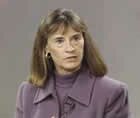
|
When you get home from work in the evening do you really want to have to sit and think, Well, let's see -- if I run my dishwasher now before dinner because I'm out of dishes it's going to cost me five cents a kilowatt hour, but if I could just hold off and set it to go on automatically at 10:00 it'll only be two? Most people really don't want to get into that kind of detail . . .
Jude Noland, Editor, "Clearing Up"
|
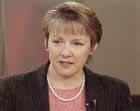 |
I think we have a tendency to look five years ahead and think, Gosh, that's a long way away, and we don't plan beyond that. We've really got to look beyond that. And in nuclear power, one of the things that we're doing right now -- we've got our national program, actually international program: the U.S. is a part of the Generation IV nuclear reactor research -- and the whole idea is to develop the next generation of reactors that have advantages over existing reactors . . .
Kathryn McCarthy, Director, Nuclear Science and Engineering, INEEL
|
 |
I've been hearing talk for 25 years about a new generation of nuclear reactors -- new, safer, less expensive, more efficient generation -- and we haven't seen any. We haven't seen one new nuclear power plant since Three Mile Island, and I'd be very surprised if we see a new generation anytime soon. I think we really need to focus instead on renewable energy resources like wind, solar, geothermal biomass.
Michael Grainey, Director, Oregon Department of Energy
|
 |
I've been involved in politics all of my adult life. Don't ask policy makers to do what the public won't tolerate.
Jim McClure, former U.S. Senator (ID)
|
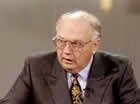 |
Part of the California energy crisis was in fact a failure of renewables -- the lack of rainfall and snowfall in the Northwest created a shortage of available hydropower. The city of Fairbanks, Alaska, has a very unreliable power supply today. If you want to build a big system of renewables you've got to have an energy storage mechanism. Well, the city of Fairbanks, Alaska just put in a large battery. It takes up a whole building; it lasts for seven minutes.
Corbin McNeill, former Exelon CEO
|
 |
But the fact that you need a portfolio doesn't mean you need everything, and this is the challenge -- you can't afford everything. When Congress passes an energy bill -- I don't fault this Congress; every Congress for a quarter century's done this. Congress never saw an energy source it didn't like. Congress's solution to a comprehensive energy plan is give something to everything.
Ralph Cavanagh, Natural Resources Defense Council
|
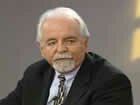 |
From a local level utilities more and more are having least cost planning and having public meetings. Get involved. Go to those meetings, express yourselves, understand what those issues are. I encourage folks to do that. We'll be embarking on several public processes in Bonneville, and I just ask people to get involved and give us your input.
Mark Maher, senior vice president for Transmission, BPA
|
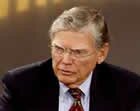 |
At the Bonneville Power Administration we weren't getting anything done until we began to consult with the public, and then we could do just about anything that was worthwhile and necessary. But to try to move without keeping the people who were going to be the beneficiaries of efficiency and conservation and energy -- they've got to be involved . . . . If it is disengaged from the public in its advancement, you know it will be just what Senator McClure says -- if the public doesn't want it, we're not going to have that.
Peter Johnson, former Director, BPA
|

